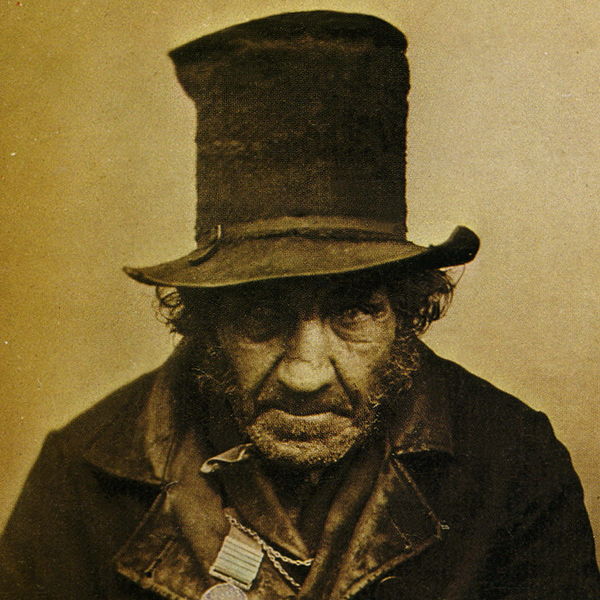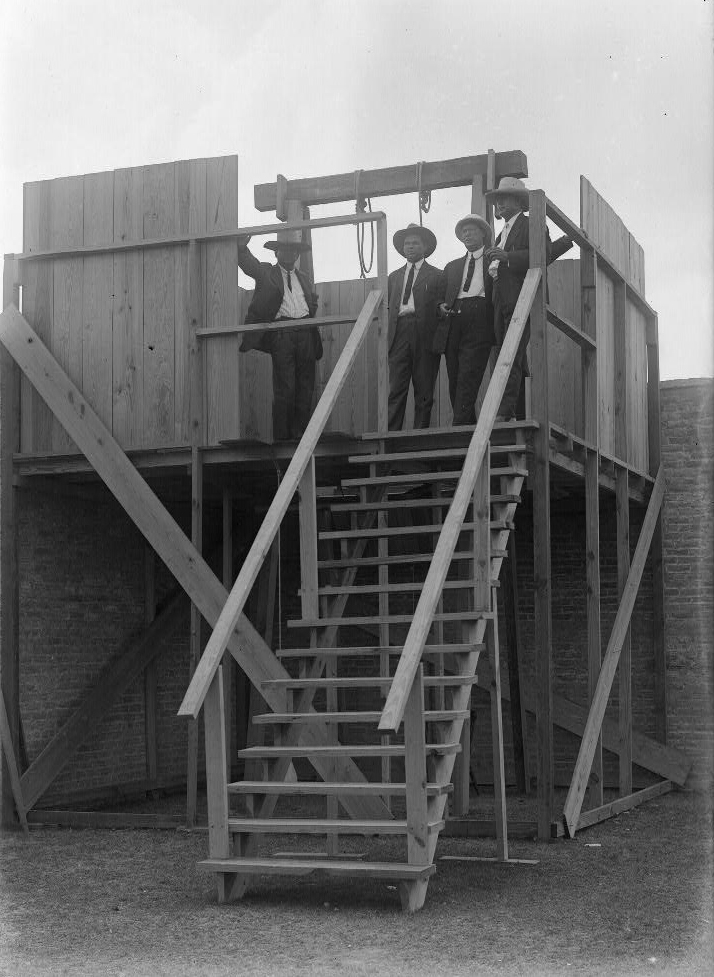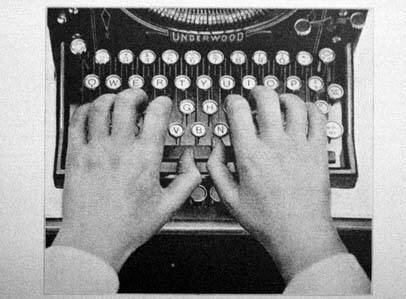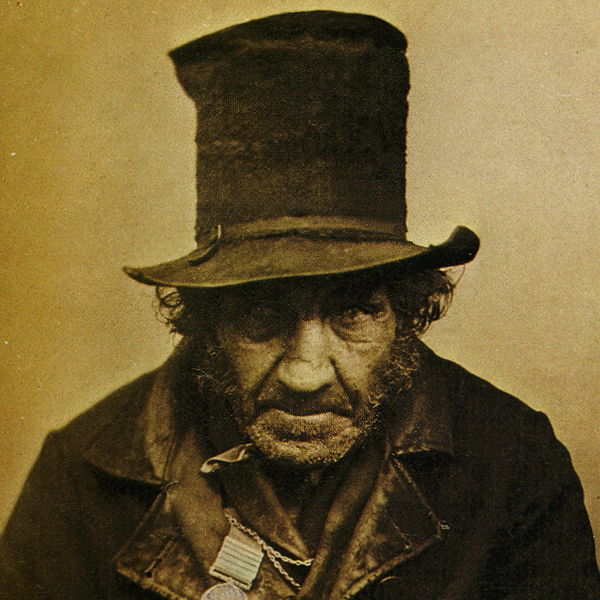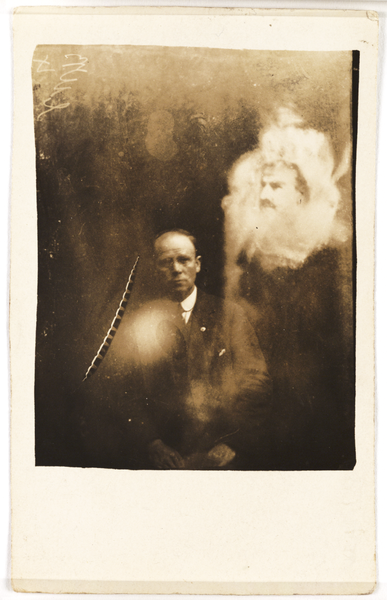Corning’s new Willow Glass is an ultra-thin wraparound product, a glass that operates almost like Scotch Tape.
You are currently browsing the yearly archive for 2012.
From the May 3, 1891 Brooklyn Daily Eagle:
“A week ago, George Wahl, a farmer at Queens, was arrested for threatening to kill his wife. He had broken nearly all the furniture in the house. Wahl was believed to be insane. He wanted to get rid of his wife, he said, that he might marry his daughter, and if his daughter would not marry him he would kill her, too. Drs. P.M. Wood and P.K. Moynen examined Wahl several times and pronounced him perfectly sane.”
Tags: Dr. P.K. Moynen, Dr. P.M. Wood, George Wahl
From Spiegel, Daniel Kahneman explaining how “priming” prompts behavior:
“SPIEGEL: Professor Kahneman, you’ve spent your entire professional life studying the snares in which human thought can become entrapped. For example, in your book, you describe how easy it is to increase a person’s willingness to contribute money to the coffee fund.
Kahneman: You just have to make sure that the right picture is hanging above the cash box. If a pair of eyes is looking back at them from the wall, people will contribute twice as much as they do when the picture shows flowers. People who feel observed behave more morally.
SPIEGEL: And this also works if we don’t even pay attention to the photo on the wall?
Kahneman: All the more if you don’t notice it. The phenomenon is called “priming”: We aren’t aware that we have perceived a certain stimulus, but it can be proved that we still respond to it.
SPIEGEL: People in advertising will like that.
Kahneman: Of course, that’s where priming is in widespread use. An attractive woman in an ad automatically directs your attention to the name of the product. When you encounter it in the shop later on, it will already seem familiar to you.” (Thanks Browser.)
Tags: Daniel Kahneman
Roboticist Daniel H. Wilson explains that eventually you’ll have the implant.
Tags: Daniel H. Wilson
From “Our Biotech Future,” Freeman Dyson’s 2007 New York Review of Books essay, in which the scientist ponders the possibilities that will result from genetic engineering being conducted by the general public:
“Domesticated biotechnology, once it gets into the hands of housewives and children, will give us an explosion of diversity of new living creatures, rather than the monoculture crops that the big corporations prefer. New lineages will proliferate to replace those that monoculture farming and deforestation have destroyed. Designing genomes will be a personal thing, a new art form as creative as painting or sculpture.
Few of the new creations will be masterpieces, but a great many will bring joy to their creators and variety to our fauna and flora. The final step in the domestication of biotechnology will be biotech games, designed like computer games for children down to kindergarten age but played with real eggs and seeds rather than with images on a screen. Playing such games, kids will acquire an intimate feeling for the organisms that they are growing. The winner could be the kid whose seed grows the prickliest cactus, or the kid whose egg hatches the cutest dinosaur. These games will be messy and possibly dangerous. Rules and regulations will be needed to make sure that our kids do not endanger themselves and others. The dangers of biotechnology are real and serious.
If domestication of biotechnology is the wave of the future, five important questions need to be answered. First, can it be stopped? Second, ought it to be stopped? Third, if stopping it is either impossible or undesirable, what are the appropriate limits that our society must impose on it? Fourth, how should the limits be decided? Fifth, how should the limits be enforced, nationally and internationally? I do not attempt to answer these questions here. I leave it to our children and grandchildren to supply the answers.”
Tags: Freeman Dyson
Tom Seaver, hugely famous after the Miracle Mets won the 1969 World Series, singing on the Kraft Music Hall.
Tags: Tom Seaver
If you lived in the 19th century and your nickname was “Three-Fingered Jack,” you were most likely a huge a-hole and wanted for more than just disturbing the peace. Numerous bandits went by that handle and things got ugly for those who crossed paths with them–and, ultimately, for the criminals themselves. A trio of short Brooklyn Daily Eagle pieces follow about various Three Finger Jacks.
••••••••••
“Three Fingered Jack Wanted” (April 10, 1889): “Police Superintendent Campbell received the following uniquely worded missive from an Indiana sheriff to-day:
‘I want Three Fingered Jack, described as follows: Height, five feet nine inches; weight, 235 pounds; complexion medium, smooth face, brown hair, blocky build, upper teeth white (look like artificial), lips little thick, third finger on one hand off at or near knuckle joint, little finger of same hand bent. He wore stiff black hat, dark suit and overcoat. He is a sport in hard luck, and talks all kind of games. Has been in the prize ring. Is wanted for false pretenses and swindling. Arrest him and wire me.’
George W. Reed
Sheriff La Porte County, La Porte, Ind.”
••••••••••
 “Train Robber Found Dying” (Feb 17, 1900): “Tombstone, Ariz.–One of the train robbers who held up the train at Fairbanks Thursday night has been found in a dying condition at Sycamore Springs, nine miles from Tombstone. The robber’s name is John Dunlap, alias Three Fingered Jack. He was brought from Colorado a few months ago on a requisition to answer a charge of highway robbery, but the District Attorney dismissed the case. Dunlap’s three accomplices are being pursued by a sheriff’s posse. The trail leads in the direction of the Cochise stronghold in the Dragoon Mountains. The wounded robber received in the abdomen the full of charge of a shotgun fired by the Wells-Fargo messenger. An ambulance left this place to bring the wounded man to town.”
“Train Robber Found Dying” (Feb 17, 1900): “Tombstone, Ariz.–One of the train robbers who held up the train at Fairbanks Thursday night has been found in a dying condition at Sycamore Springs, nine miles from Tombstone. The robber’s name is John Dunlap, alias Three Fingered Jack. He was brought from Colorado a few months ago on a requisition to answer a charge of highway robbery, but the District Attorney dismissed the case. Dunlap’s three accomplices are being pursued by a sheriff’s posse. The trail leads in the direction of the Cochise stronghold in the Dragoon Mountains. The wounded robber received in the abdomen the full of charge of a shotgun fired by the Wells-Fargo messenger. An ambulance left this place to bring the wounded man to town.”
••••••••••
“An Outlaw Killed in Bed” (December 4, 1895): “Perry, Oklahoma Territory–Jack Phineas, alias Three Fingered Jack, one of the most noted outlaws in Oklahoma, was killed while in bed with his wife near Kildare, Monday night, by some unknown person. He was a member of the famous Dalton Gang, and during his eventful career has probably committed every crime on the calendar. About 9 o’clock Monday night some one crept to the room and cut the throat of the outlaw from ear to ear. The murderer evidently knew the direct spot where Phineas lay, as his wife was not awakened until the deed was done. Whether he had an old grudge against Phineas or what is not known.”
Tags: Dalton Gang, George W. Reed, Jack Phineas, John Dunlap, Police Superintendent Campbel, Three-Fingered Jack
At the Financial Times, Simon Schama presents a portrait of Yoko Ono at 79. An excerpt about the bold performance art she made before she was a Beatle bride, which showed a really good understanding of neuroscience:
“In a cold-water apartment on Chambers Street, New York, she gave a series of performances and concerts in which minimalist ‘instructions’ and transient experiences replaced the static, monumental pretensions of framed pictures. The prompted eye and the receptive brain made the pictures instead. The technique was lovely, liberating and genuinely innovative. ‘I thought art should be like science, always discovering things afresh, and I wanted to be Madame Curie.’
So when she and Lennon had their momentous encounter at Indica in 1966, Ono was already established as an avant-garde conceptual artist. She insists she really had no idea who he was or what he did. ‘I just saw this rather attractive guy who seemed to be taking my work very seriously.’ Of pop music she knew nothing, ‘not even of Elvis Presley; just maybe some jazz.’ Of what was about to hit them both out there in Beatlemania land she had no clue. ‘I was naïve. We both were … we thought that it was going to be really great.’ It wasn’t. ‘My work totally disappeared and John, with all that power he had, was going to go down too.’ She falls quiet for a moment; a flicker of sadness clouding the wide, expressively sunny face. ‘I feel very badly if maybe I was the cause of it.'” (Thanks Browser.)
••••••••••
“The Cut Piece,” 1965:
Tags: Simon Schama, Yoko Ono
Interesting article in the Economist predicting the decline of the efficacy of doctors in an increasingly wired world with a growing, graying population:
“The past 150 years have been a golden age for doctors. In some ways, their job is much as it has been for millennia: they examine patients, diagnose their ailments and try to make them better. Since the mid-19th century, however, they have enjoyed new eminence. The rise of doctors’ associations and medical schools helped separate doctors from quacks. Licensing and prescribing laws enshrined their status. And as understanding, technology and technique evolved, doctors became more effective, able to diagnose consistently, treat effectively and advise on public-health interventions—such as hygiene and vaccination—that actually worked.
This has brought rewards. In developed countries, excluding America, doctors with no speciality earn about twice the income of the average worker, according to McKinsey, a consultancy. America’s specialist doctors earn ten times America’s average wage. A medical degree is a universal badge of respectability. Others make a living. Doctors save lives, too.
With the 21st century certain to see soaring demand for health care, the doctors’ star might seem in the ascendant still. By 2030, 22% of people in the OECD club of rich countries will be 65 or older, nearly double the share in 1990. China will catch up just six years later. About half of American adults already have a chronic condition, such as diabetes or hypertension, and as the world becomes richer the diseases of the rich spread farther. In the slums of Calcutta, infectious diseases claim the young; for middle-aged adults, heart disease and cancer are the most common killers. Last year the United Nations held a summit on health (only the second in its history) that gave warning about the rising toll of chronic disease worldwide.
But this demand for health care looks unlikely to be met by doctors in the way the past century’s was.”
••••••••••
“Man…woman…birth…death…infinity”:
My Grandma… (Westchester)
I would like to barter my Grandma. Currently I am living with her. She is independent and does not need to be taken care of. Just be prepared for her ignorant rants about how everyone is stupid and things used to be so much better. You will hear about how she is glad her husband is dead and probably some racist stuff also. She will be nice to you and everyone else’s face but will badmouth everyone behind their back in the six hours she spends on the phone a day. She will do gross stuff like use your kitchen sponge to wash everywhere and put it back in the sink. Also never eat her cooking. She is unsanitary and you will be crapping liquid for days. She does stuff like dipping raw chicken in bread crumbs and then putting the remainder back in the box to be used again. Grandma is a pack-rat who blows through money recklessly and then complains she is poor but uses the excuse that the bible says the world will end soon. And speaking of the bible if you ever cross her she will say you have the demons in you. She believes that she was diagnosed with MS in her thirties and overcame it. (First case I ever heard of.) Dont try and argue with her. She is always right. If you have any type of headache ever she will insist you are a drunk even though you never drink.
Doesn’t sound too great huh. Maybe we can barter for some yard work exchange for the next sixty years and you could maybe just push her down the stairs. Be creative…will entertain all offers.
Guy Debord directed this 1973 adaptation of his book, Society of the Spectacle. Um, some generalizations.
Tags: Guy Debord
From Vernor Vinge’s famous 1993 essay, “The Coming Technological Singularity: How to Survive in the Post-Human Era,” which coined the word which describes that moment when machine knowledge surpasses the human kind:
“What are the consequences of this event? When greater-than-human intelligence drives progress, that progress will be much more rapid. In fact, there seems no reason why progress itself would not involve the creation of still more intelligent entities — on a still-shorter time scale. The best analogy that I see is with the evolutionary past: Animals can adapt to problems and make inventions, but often no faster than natural selection can do its work — the world acts as its own simulator in the case of natural selection. We humans have the ability to internalize the world and conduct ‘what if’s’ in our heads; we can solve many problems thousands of times faster than natural selection. Now, by creating the means to execute those simulations at much higher speeds, we are entering a regime as radically different from our human past as we humans are from the lower animals.
From the human point of view this change will be a throwing away of all the previous rules, perhaps in the blink of an eye, an exponential runaway beyond any hope of control. Developments that before were thought might only happen in ‘a million years’ (if ever) will likely happen in the next century.
I think it’s fair to call this event a singularity (‘the Singularity’ for the purposes of this paper). It is a point where our models must be discarded and a new reality rules. As we move closer and closer to this point, it will loom vaster and vaster over human affairs till the notion becomes a commonplace. Yet when it finally happens it may still be a great surprise and a greater unknown.”
Tags: Vernor Vinge
Even more lifelike than John Glenn.

"Seventeen couples have tried it so far. All but one left divorce-ready." (Image by Jennifer Pahlka.)
The road to splitsville can be a tortuous path for many married couples, but Dutch entrepreneur Jim Halfens has come up with an answer of sorts: the Divorce Hotel, a place for quick and tidy dissolutions. He hopes to bring his idea (and a reality show) to America, which will make us no more miserable than we already are. From Janet Morrissey in the New York Times:
“THE American marriage, it seems, is on the rocks. The common line — true or not — is that half of all marriages in this country end in divorce.
So here comes a plucky entrepreneur from, of all places, the Netherlands, with a wild, you’ve-got-to-be-joking plan to profit from the sorry state of so many American unions.
It’s called Divorce Hotel, and the idea is this: Check in on Friday, married. Then, with the help of mediators and independent lawyers, check out on Sunday, divorce papers in hand, all for a flat fee.
And — why not? — toss in some reality TV for good measure.
Unusual as it sounds, the Divorce Hotel concept is up and running in the Netherlands, where its mastermind, Jim Halfens, is helping unhappy marrieds divorce en suite. Seventeen couples have tried it so far. All but one left divorce-ready.
Now Mr. Halfens, 33, wants to take the idea to the United States. He is negotiating with hotels in several cities, including New York and Los Angeles, as well as with law firms and, yes, two television production companies — for a reality show.”
Tags: Janet Morrissey, Jim Halfens
From the August 23, 1853 Brooklyn Daily Eagle:
“On Saturday, a peacock attacked the infant daughter of John Kreutzer, of Summit Township, Pa., with such fury that he pecked out one of her eyes, and wounded the other before he was driven off. The child had a glass of milk, which, it appears, the bird wanted.”
Tags: John Kreutzer
- Did you attend the Lowbrow Reader Reader publication party?
- Old Print Articles: Warden buys prisoners lots of pies (1882) + Mind reader wants to be buried alive (1893) + Texas bullfight goes horribly wrong (1900).
- Featured Videos: A good Bucky Fuller doc (1974) + Orson Welles and Peter O’Toole discuss Hamlet (1963) + Inside Francesco Scavullo’s photo studio (1978) + Quantum Trapping could transform transportation + Early Video Disk players never caught on (1978) + Richard Feynman didn’t believe in computer science (1985) + The Sonora Desert is natural but somehow feels denatured (1978) + The early days of laser light shows (1977).
- Recently Posted on NYC’s Craigslist: If you don’t get here by 6pm, I’m having salad for dinner + Rat salesman with exceptional customer service skills + And Frankenstein coaches my kid’s little league team + Down a kidney but excelling at dignity.
- Craig Venter wants “smart bugs” to cure all human ills.
- Can China transition from fake Apple stores to authentic tech powerhouse?
- Jeet Heer examines Marshall McLuhan’s religious inspiration.
- Daniel Kahneman explains the difference between storytellers and logicians.
- Lit Motors has developed a self-balancing, enclosed, electric motorcycle.
- The end of death may ultimately be a Pyrrhic victory.
- No one has summed up our smart-stupid age better than Louis C.K.
- Headphones were invented by a Mormon supporter of polygamy.
- Joshua Foer analyzes people with unusual memory ability.
- Evgeny Morozov thinks terrorists might pass on cybercrime.
- The world needs to develop lots of ethical robots.
- The informal economy booms when the formal one busts.
- A building surveyor suddenly became unable to visualize things.
- Governor Cuomo attempts to dismantle NY’s prison-industrial complex.
- Adam Curtis explains the romantic appeal of Mad Men.
- The original 1960 NYT report about Norman Mailer stabbing his wife.
- Dan Ariely thinks that we’re all lying, scheming cheaters.
- MIT develops a needleless injection system.
- Reyner Banham was impressed by Silicon Valley buildings.
- People often sacrifice principles while fighting for principles.
- Constant MLB games on cable TV doesn’t hurt baseball attendance.
- A brief note from 1897 about a snoring drunkard.
- A brief note from 1898 about a thieving horse.
- Afflictor Nation: Russia rules in May.
- This week’s Afflictor keyphrase searches.
A good chunk of a 1963 Monitor program in which Peter O’Toole and Orson Welles discuss Hamlet.
Tags: Orson Welles, Peter O'Toole
Maybe it’s because I’m from a fringy, blue-collar background in NYC, but I’ve always been very familiar with the informal economy, people earning a few extra dollars selling loosies or trinkets or food, handing out betting cards for bookies and other stuff that may or may not be legal. Such low-level entrepreneurship is becoming more common in the West during these desperate times, with the help of digital tools. A succinct explanation of the informal economy by Anand Giridharadas in the New York Times:
“One of the differences between rich and poor countries is that in the latter, people seldom wait for the government to ‘create jobs.’
When times are hard, they buy packs of cigarettes and sell them as singles; they find houses to clean through cousins of a cousin; they rent out bedrooms to students; they stock up on cellphone credit and peddle sidewalk calls by the minute.
It’s called the informal economy, and in much of the world it is bigger than the formal one. But it has been pushed onto the sidelines in the West, the refuge of criminals and the poor, because of labor laws, taxes, health and safety regulations and the like, which emerged to protect workers and consumers from the market’s vicissitudes and companies’ whims.”
Tags: Anand Giridharadas
From the August 9, 1898 edition of the Brooklyn Daily Eagle:
“A horse took an apple yesterday from the fruit stand of Frank Cosleato, an Italian fruit peddler, 55 years old, of 143 Union Street. The peddler was much incensed and pulled out a knife and cut the horse in the nose, causing the animal considerable pain.”
Tags: Frank Cosleato
The opening of “Look Deep Into the Mind’s Eye,” Carl Zimmer’s 2010 Discover article about a building surveyor’s sudden inability to visualize things:
“One day in 2005, a retired building surveyor in Edinburgh visited his doctor with a strange complaint: His mind’s eye had suddenly gone blind.
The surveyor, referred to as MX by his doctors, was 65 at the time. He had always felt that he possessed an exceptional talent for picturing things in his mind. The skill had come in handy in his job, allowing MX to recall the fine details of the buildings he surveyed. Just before drifting off to sleep, he enjoyed running through recent events as if he were watching a movie. He could picture his family, his friends, and even characters in the books he read.
Then these images all vanished. The change happened shortly after MX went to a hospital to have his blocked coronary arteries treated. As a cardiologist snaked a tube into the arteries and cleared out the obstructions, MX felt a ‘reverberation’ in his head and a tingling in his left arm. He didn’t think to mention it to his doctors at the time. But four days later he realized that when he closed his eyes, all was darkness.”
Tags: Carl Zimmer

